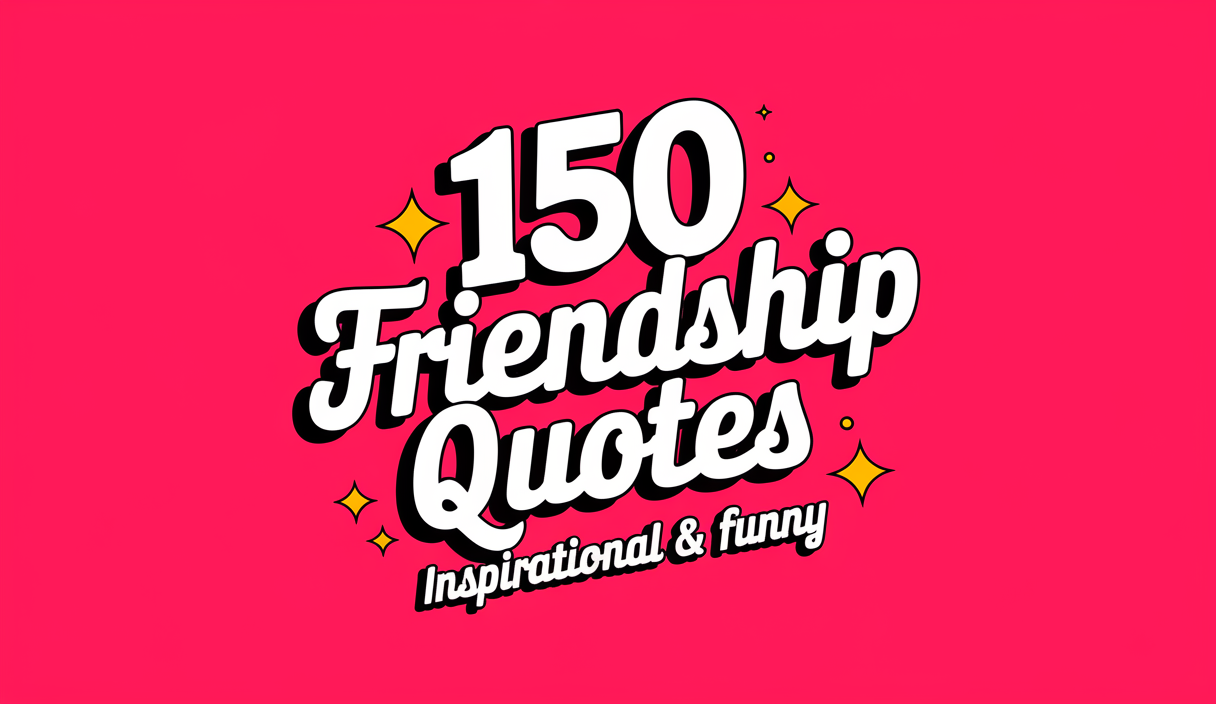Hey there, book lovers and curious minds! Ever wondered about the books you should read before you die? Well, you’re in the right place. I’ve got a list of 20 absolute must-reads that’ll knock your socks off and maybe even change your life. These aren’t just any old books – they’re the cream of the crop, the ones that’ll stick with you long after you’ve turned the last page.
Now, why should you care about a list of books to read before you die? Well, these picks aren’t random. Each one has earned its spot for a reason. They’re the kind of reads that have the power to change your perspective, challenge your beliefs, or even alter the course of your life. Books are like little time machines or portals to other worlds, letting you experience different lives, cultures, and ideas without ever leaving your couch.
So, whether you’re a bookworm looking for your next great read, a casual reader wanting to up your literary game, or someone who hasn’t picked up a book since high school, this list has something for you. Grab a comfy seat, maybe a hot drink, and let’s dive into this literary treasure trove!
Table of Contents
Toggle1.To Kill a Mockingbird by Harper Lee

Harper Lee’s masterpiece is a must on any list of books to read before you die. Set in the American South, it tackles racial injustice through the eyes of young Scout Finch. The story’s power lies in its ability to address serious themes with childlike innocence and wisdom. Atticus Finch, Scout’s father, becomes a symbol of integrity and moral courage as he defends a black man falsely accused of rape.
Lee’s vivid writing transports you to Maycomb, Alabama, making you feel every tension and triumph. This novel isn’t just a critique of racism; it’s a poignant exploration of human nature, compassion, and the loss of innocence that resonates across generations.
2.1984 by George Orwell

Orwell’s dystopian masterpiece is frighteningly relevant in our age of surveillance and “alternative facts.” Written in 1949, it paints a chilling picture of a totalitarian future where the government controls every aspect of life, including thought. The story follows Winston Smith as he rebels against the oppressive regime, leading to consequences that will make your skin crawl.
Orwell’s exploration of language manipulation, historical revisionism, and psychological control is both fascinating and terrifying. Concepts like “doublethink” and “thoughtcrime” will have you questioning the very nature of truth and freedom. “1984” is more than a novel; it’s a stark warning about the dangers of unchecked power and the importance of individual thought.
3.Pride and Prejudice by Jane Austen

Jane Austen’s witty romance is a timeless classic that continues to captivate readers centuries after its publication. At its heart is the spirited Elizabeth Bennet, whose journey from prejudice to love with the proud Mr. Darcy is both delightful and profound.
But “Pride and Prejudice” is more than just a love story. It’s a razor-sharp satire of 19th-century English society, exploring themes of class, marriage, and personal growth. Austen’s sparkling dialogue and keen observations of human nature make this novel a joy to read. Whether you’re a romantic at heart or a fan of social commentary, this book offers insights that resonate even in our modern world.
4.The Great Gatsby by F. Scott Fitzgerald

Fitzgerald’s masterpiece is the quintessential American novel, capturing the glitz, glamour, and underlying emptiness of the Roaring Twenties. Through the eyes of Nick Carraway, we’re drawn into the lavish world of the enigmatic Jay Gatsby and his obsession with the elusive Daisy Buchanan. But beneath the dazzling parties and opulent lifestyle lies a poignant exploration of the American Dream’s dark side. Fitzgerald’s prose is pure poetry, painting vivid scenes that linger in your mind long after you’ve finished reading. The novel’s themes of wealth, love, and the corruption of the American Dream remain startlingly relevant today, making it a must-read for anyone seeking to understand the complexities of ambition and desire.
5.One Hundred Years of Solitude by Gabriel García Márquez

Márquez’s magnum opus is a mind-bending journey through seven generations of the Buendía family in the fictional town of Macondo. This isn’t your typical family saga – it’s a kaleidoscope of magical realism where the extraordinary becomes ordinary. From flying carpets to plagues of insomnia, Márquez weaves a tapestry of love, war, and the cyclical nature of history.
The novel’s non-linear narrative and blend of myth and reality can be challenging, but it’s incredibly rewarding. It’s a book that demands your full attention and rewards you with a rich, immersive experience. “One Hundred Years of Solitude” isn’t just a story; it’s a whole world waiting to be discovered.
6.The Catcher in the Rye by J.D. Salinger

Salinger’s iconic novel has been a rite of passage for generations of readers. Through the eyes of the cynical, alienated teenager Holden Caulfield, we experience a raw and honest critique of the adult world’s “phoniness.” Holden’s voice is so authentic and relatable that you’ll feel like you’re listening to a friend.
The novel’s exploration of teenage angst, loss of innocence, and the struggle to find one’s place in the world resonates just as strongly today as it did when it was first published. Whether you’re a teenager grappling with similar issues or an adult looking back, “The Catcher in the Rye” offers a powerful, often uncomfortable, but ultimately cathartic journey through the complexities of growing up.
7.The Hobbit by J.R.R. Tolkien
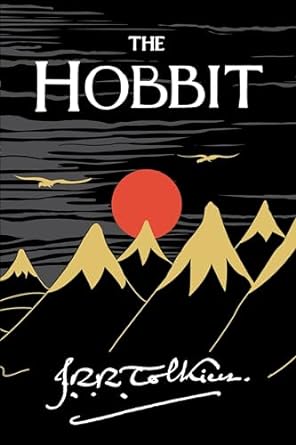
Tolkien’s beloved adventure is the perfect introduction to the rich world of Middle-earth. Join Bilbo Baggins, a comfort-loving hobbit, as he’s swept into an epic quest with a group of dwarves to reclaim their homeland from a fearsome dragon. This isn’t just a fantasy story; it’s a tale of personal growth, friendship, and the hidden strengths we all possess. Tolkien’s imaginative world-building and charming characters make this a joy to read at any age. From riddle contests with Gollum to encounters with trolls and elves, every chapter is filled with wonder and excitement. “The Hobbit” reminds us that great adventures can come in small packages, and that courage often comes from the most unexpected places.
8. Beloved by Toni Morrison

Morrison’s Pulitzer Prize-winning novel is a haunting exploration of the lasting trauma of slavery. Set in post-Civil War Ohio, it tells the story of Sethe, a former slave haunted by the ghost of her baby daughter. When a mysterious young woman named Beloved appears, the past and present collide in ways both beautiful and terrifying. Morrison’s prose is lyrical and powerful, weaving together folklore, magical realism, and brutal historical reality.
This isn’t an easy read – it’s challenging, heart-wrenching, and at times disturbing. But it’s also a profound meditation on memory, motherhood, and the enduring impact of America’s darkest chapter. “Beloved” is a book that will stay with you long after you’ve turned the final page.
9.The Hitchhiker’s Guide to the Galaxy by Douglas Adams

Adams’ sci-fi comedy is a wild, witty ride through the galaxy that will have you laughing out loud and pondering life’s big questions. When Earth is destroyed to make way for a hyperspace bypass, Arthur Dent finds himself on an absurd adventure across the universe. From depressed robots to bureaucratic aliens, every page is filled with clever satire and mind-bending concepts.
But beneath the humor lies a sharp critique of human nature and our place in the cosmos. Adams’ unique blend of science fiction and philosophy makes complex ideas accessible and entertaining. Whether you’re a sci-fi fan or just looking for a good laugh, “The Hitchhiker’s Guide” is an essential read that will change how you view the universe – and the importance of always knowing where your towel is.
10.The Color Purple by Alice Walker
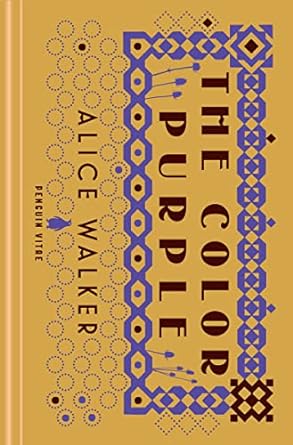
Walker’s Pulitzer Prize-winning novel is a powerful testament to the resilience of the human spirit. Through a series of letters, we follow Celie, a young African American woman in the early 20th century South, as she overcomes abuse, racism, and sexism to find her voice and her joy.
The novel’s exploration of sisterhood, both biological and chosen, is particularly moving. Walker’s writing is raw and honest, tackling difficult themes with grace and even moments of unexpected humor. “The Color Purple” is not just a story of survival; it’s a celebration of the transformative power of love and self-discovery. It’s a book that will break your heart and then piece it back together, leaving you forever changed.
11.Brave New World by Aldous Huxley
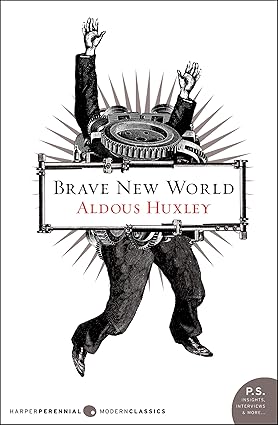
Huxley’s dystopian classic presents a future where stability and happiness are prioritized over freedom and individuality. In this world of genetic engineering and mood-altering drugs, conformity is the highest virtue. The novel follows Bernard Marx, an outsider who begins to question the foundations of his society.
Huxley’s vision is chillingly prescient, touching on issues like consumerism, technological dependence, and the loss of human connection that resonate strongly in our modern world. Unlike other dystopias that rule through fear, “Brave New World” shows the dangers of a society that controls through pleasure and distraction. It’s a thought-provoking read that will make you question the price of comfort and the value of genuine human experience.
12.The Alchemist by Paulo Coelho
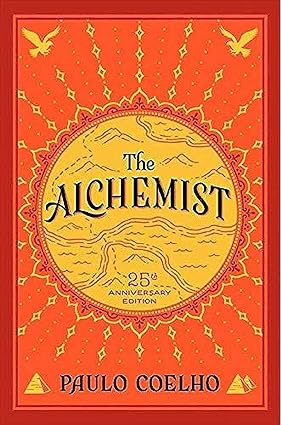
Coelho’s philosophical novel is a modern fable about following your dreams. It follows Santiago, a young shepherd who embarks on a journey to find his “Personal Legend.” Along the way, he learns to listen to his heart, read the omens strewn along life’s path, and understand that the universe conspires to help those who pursue their dreams.
Coelho’s simple yet profound prose makes complex spiritual concepts accessible and inspiring. “The Alchemist” is more than just a story; it’s a guide to self-discovery and personal growth. Whether you’re at a crossroads in life or simply seeking inspiration, this book offers wisdom that can be applied to anyone’s journey. It’s a reminder that our greatest treasure often lies within ourselves.
13.Slaughterhouse-Five by Kurt Vonnegut

Billy Pilgrim has become unstuck in time. A former POW and survivor of the Dresden firebombing, he jumps randomly between moments in his life, including his abduction by aliens from the planet Tralfamadore. Vonnegut’s style is fragmented and non-linear, mirroring Billy’s disjointed experience of time. The phrase “So it goes” punctuates every mention of death, a fatalistic refrain that underscores the novel’s themes of free will and the futility of war.
Despite its grim subject matter, the book is shot through with dark humor and absurdist touches. Vonnegut uses science fiction tropes to explore very real trauma, creating a unique blend of autobiography and anti-war statement. It’s a powerful, often unsettling read that challenges conventional narrative structures and forces readers to confront difficult truths about human nature and the horrors of war.
14.The Handmaid’s Tale by Margaret Atwood
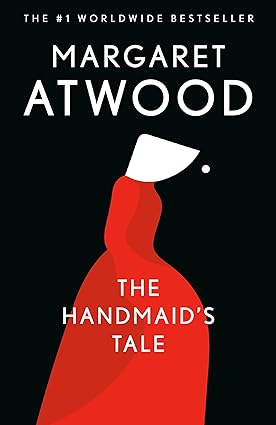
In the near-future Republic of Gilead, formerly the United States, a theocratic regime has stripped women of all rights. The narrator, Offred, is a Handmaid, assigned to bear children for the ruling class in a world of declining fertility. Atwood’s prose is sharp and observant, laden with double meanings that reflect Offred’s constrained existence.
The novel alternates between Offred’s present circumstances and flashbacks to the time before and during the rise of Gilead, creating a chilling portrait of how quickly rights can be eroded. Atwood’s world-building is meticulous, with every aspect of Gileadean society feeling terrifyingly plausible. The book explores themes of power, gender roles, and the importance of memory in maintaining identity under oppression.
15.The Lord of the Rings by J.R.R. Tolkien

Tolkien’s epic fantasy trilogy follows the hobbit Frodo Baggins and his diverse companions on a quest to destroy the One Ring and defeat the Dark Lord Sauron. The books are renowned for their intricate world-building, complete with invented languages, detailed histories, and complex mythologies.
Tolkien’s writing style is formal and descriptive, with lengthy passages devoted to the landscapes and cultures of Middle-earth. The story explores grand themes of good versus evil, the corrupting nature of power, and the importance of even the smallest person in the fate of the world.
While the pacing can be slow at times, particularly in the many songs and poems interspersed throughout the text, the overall narrative is gripping and has influenced countless works of fantasy literature. The trilogy rewards patient readers with a richly imagined world and a timeless tale of heroism and friendship in the face of overwhelming odds.
16.The Diary of a Young Girl by Anne Frank

Anne’s diary begins on her 13th birthday, a gift that would become her confidant during two years of hiding from the Nazis in Amsterdam. Her entries provide a vivid, intimate portrait of life in the “Secret Annex,” where eight people lived in cramped quarters, constantly fearing discovery. Frank’s writing is remarkably mature, oscillating between typical teenage concerns – crushes, conflicts with her mother, dreams for the future – and profound reflections on human nature and the war raging outside. Her voice is candid, often humorous, and deeply introspective.
As the diary progresses, readers witness Anne’s emotional and intellectual growth, making the abrupt end of her writing all the more poignant. Knowing Anne’s fate – her eventual capture and death in Bergen-Belsen concentration camp – adds a layer of tragedy to her hopeful words. This firsthand account of the Holocaust, told through the eyes of a young girl, remains one of the most powerful testaments to the human cost of war and persecution.
17.The Grapes of Wrath by John Steinbeck

Steinbeck’s novelfollows the Joad family, Oklahoma farmers driven from their land by drought and economic hardship during the Great Depression. As they journey to California in search of work and a better life, they face hostility, exploitation, and starvation. The narrative alternates between the Joads’ specific experiences and broader, more poetic chapters describing the overall socioeconomic conditions of the time. Steinbeck’s prose is direct and unflinching, painting a vivid picture of the dust bowl and the desperate measures people take to survive. The dialogue captures the distinctive voice of the “Okies,” lending authenticity to the characters.
18.Fahrenheit 451 by Ray Bradbury
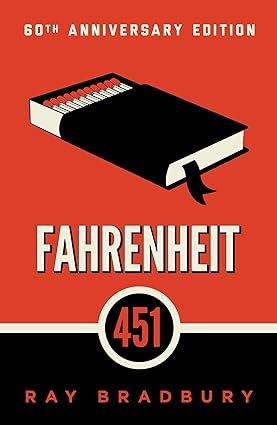
In a future where books are banned and “firemen” burn any that are found, Guy Montag begins to question his role as a book-burning fireman. Bradbury’s prose crackles with energy, especially in his descriptions of fire and burning.
The world he creates is a dystopian version of America where critical thinking is discouraged, people are pacified by wall-sized interactive televisions, and meaningful human interaction is rare. As Montag begins to read and think for himself, aided by characters like the free-thinking Clarisse and the former professor Faber, he becomes a fugitive from the very system he once served. Bradbury’s novel is a scathing critique of censorship and anti-intellectualism, warning against the dangers of a society that values comfort and conformity over knowledge and individuality.
The book’s themes of information control and the dumbing down of society through mass media feel increasingly relevant in our digital age. Despite its bleak premise, the novel ultimately offers a message of hope in the power of books and ideas to survive even the most oppressive regimes.
19.The Little Prince by Antoine de Saint-Exupéry
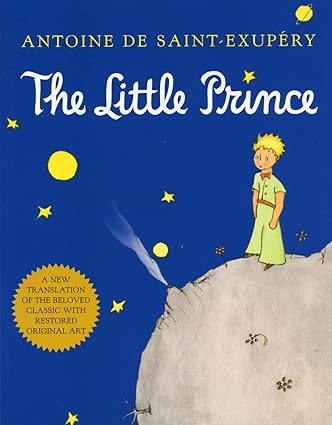
This novella begins with a pilot stranded in the Sahara Desert, where he encounters a mysterious young boy – the Little Prince – who has fallen to Earth from a tiny asteroid. As the Prince recounts his travels from planet to planet, each inhabited by a single adult, the story unfolds as a critique of the strange world of grown-ups. Saint-Exupéry’s prose is simple yet profound, using the naïve perspective of the Little Prince to comment on love, loss, friendship, and the absurdities of adult behavior.
The book is filled with whimsical illustrations by the author, which are as iconic as the text itself. Each character the Prince meets – from the king with no subjects to the businessman counting stars – represents some aspect of adult society that Saint-Exupéry finds foolish or misguided.
At its heart, the book is a meditation on the importance of maintaining childlike wonder and the true meaning of love and friendship. Its deceptively simple narrative contains layers of philosophical and existential meaning, making it a book that resonates differently with readers at different stages of life.
20.The Road by Cormac McCarthy

Set in a post-apocalyptic America, “The Road” follows a father and son as they journey through a desolate landscape, pushing a shopping cart containing their meager possessions. McCarthy’s prose is as stark and unforgiving as the world he describes, with minimal punctuation and a focus on the immediate physical realities of survival.
The dialogue between the man and boy is terse, often just a few words, reflecting their desperate circumstances. As they travel towards the coast, hoping to find warmth and possibly other “good guys,” they face constant threats from starvation, exposure, and bands of cannibals. McCarthy doesn’t explain what caused the apocalypse, focusing instead on its aftermath and the moral choices the characters face.
The novel explores themes of survival, faith, and the enduring power of love in the face of overwhelming despair. Despite its bleak setting, the book is ultimately a powerful affirmation of the human will to survive and the unbreakable bond between parent and child. McCarthy’s unflinching portrayal of a world stripped bare forces readers to confront difficult questions about what it means to be human in the absence of society and hope.
Conclusion
These 20 books are often considered essential reading that everyone should experience before they die. They represent some of the most influential and thought-provoking works in literature, offering profound insights into the human condition.
Reading these books before you die can significantly enrich your understanding of the world and human nature. They cover a wide range of themes, from historical events to philosophical questions, and showcase diverse writing styles and perspectives.
These books have earned their place on many “must-read before you die” lists due to their enduring impact and relevance. They challenge readers to think critically, explore complex ideas, and empathize with different experiences.
While life is short and there are countless books to choose from, these 20 are often seen as particularly worthwhile investments of your limited reading time. They offer opportunities for personal growth, intellectual stimulation, and emotional resonance that can stay with you for a lifetime.


